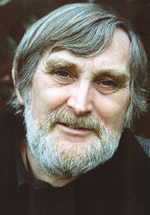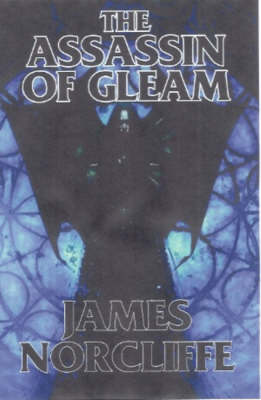Canterbury poet enjoying busy writing career
This interview was conducted in July 2007

Poet James Norcliffe is one busy wordsmith writing and teaching take up most of his time, but he is also poetry editor for Takahe magazine, helps organise reading events through the Poetry Collective, and co-ordinates a weekly poem for The Press.
In the last couple of year’s he’s also spent time travelling. In 2005 spent a month in Hobart on a writing fellowship. With “nothing to lose” he thought he’d apply only later discovering that “overseas writers” for the Islands in Residence programme included mainland Australians.
A “bit like the West Coast”, the rugged Tasmanian landscape attracted writers from all over the world, and competition was tough.
So did the Australians appreciate his New Zealand poetry?
“I think they thought it was seriously weird,” he says. “I had to do a full day writing workshop, which was a bit daunting because there were some seriously fine poets turned up to that Louise Oxley and Kathryn Lomer and a few other quite well-known names in that part of the world. It was great fun.”
“I’ve always thought that Australian poetry as a whole was a little more straight-laced than ours perhaps they’ve developed their own tradition, whereas in New Zealand we’ve been a bit more eclectic…
“My own work tends to be a bit more surreal at times and it uses a lot of wit… they enjoyed it, it went down very well, but one guy came up and said ‘Your poetry - it’s a little bit odd’.”
The audience in Iowa was quite different.
“I used the word eclectic before - American poetry at the moment is a hugely broad church. We used to say there were two streams in American poetry that deriving from Walt Whitman, the bardic scene, leading to modern poets like Allen Ginsberg and the beats and people like that long, loping, personal poems then there’s that other stream deriving from Emily Dickinson and the sort of academic poetry which is chiselled little objects but now just about anything goes in American poetry that’s what so wonderful about it.”
“It’s big enough that there are journals and places for just about any sort of poetry. Nobody over there, as far as I know, thought my work was seriously weird, but I did find a lot of the younger poetry seemed to be this long tradition of let it all hang out a lot of four-letter words it just seemed to be a ranting monologue to me. I’d like a little bit more craft at times.”
He now finds himself in Lincoln traditionally, he says a place of “agriculture, horticulture, viticulture and a bit of commerce and landscape gardening thrown in but they actually do have an English department”. Norcliffe teaches English in the Foundation Studies programme and has enjoyed it for several years.“I just love it.”
Longer formats ‘fun’
 He has also been working in longer writing formats particularly a science fiction / fantasy trilogy.
He has also been working in longer writing formats particularly a science fiction / fantasy trilogy.
“The earlier children’s books I wrote were more child-oriented. They had kids as protagonists, the fantasy was more humorous than dark. When I was in Dunedin I picked up a project that I’d had in the back of my mind for a long time, and I ran with it.
“The Assassin of Gleam was a much darker book, which had adult protagonists and deaths, torture, lepers but no bonking…”
“It was such fun I went ahead and wrote the second one The Mistress of Yewfire, and when I was in Iowa I finished the third The Witch of Aboraxus.
“The second one of the Gleam (trilogy) is coming out shortly, I think now in August (2007). The Assassin of Gleam was fortunate to pick up the Sir Julius Vogel Award for the best science fiction fantasy published in NZ in 2006 so they had to delay the Yewfire one to include the glowing testimonial on the cover…”
Landscape and situations both play an important role in writing, Norcliffe says.
“I like to locate a poem in a specific place unless it’s one of those mad things but memory I think is the source of it. Most of the poems are situational. But to recover that situation it’ll be in a very specific setting which I like to try and bring alive as well.”
“I think what a poet does is try and find out what really happened, or what it really meant and the poem often tells you that. It sounds a bit high-falutin’ but you don’t really often know yourself until you work it through.”
“It’s a bit like that famous line of Louis Armstrong’s ‘If you have to ask what jazz is you’ll never know what it is’.”
Local scene alive and well
The Canterbury poetry scene is very lively he says.
“There’s several groups that get together. Doc Drumheller in Lyttelton runs a group that goes under the name of The Catalyst at the Wunderbar. It’s terrific, and he gets quite a team of exciting young poets out there, and he brings people in.
“I’ve read in Wellington the last couple of years and audiences are not very good. In 2006 they had the International Poetry Festival, with terrific people from overseas Japanese poets, a guy from India, Sam Hamill from Poets Against the War, John F. Deane from Ireland quite big names and they didn’t bring in the punters.
“But our little Autumn Readings have an audience of about 50 or so at the Madras Café Bookshop, and that’s good.”
“There’s two magazines that run out of Christchurch, and I’m the poetry editor of Takahe and I’m hugely subscribed I have an embarrassment of riches trying to choose. We’re also responsible for The Press poem every week and again I get far more offered than I can possibly use and have to turn often quite good things down. So in terms of the performance aspect, the writing aspect there’s a lot out there.
It’s sort of a secret, furtive activity that quite ordinary people engage in.”“Poetry in Christchurch gets a huge boost and has done for several years, too, from the work of the Christchurch School for Young Writers. Not only does the school nurture the writers of the future, it also publishes them handsomely in its magazine Write On but also in its annual publication Re-Draft. Re-Draft, which I help edit, assembles the very best writing from young people throughout the country - and most of it is absolutely amazing.”
Advice for poets
For those interested in taking their first steps as a poet, Norcliffe has simple advice:
“Read.”
“Read, read, read.”
“What I find most dreadful about a lot of people is that they have a completely false idea of what poetry is and can do. They think as long as you write a metrical pattern piece of language, with clunky rhymes … that suddenly they’re poets. Poetry works through suggestion and setting off little fires in people’s heads that sort of clunky stuff puts them out.”“So they really have to read to get an appreciation of what poetry can do. It’s like music I suppose if you only ever listen to one sort of music, you’ll never know the glories of music.”
“Metrical verse is now such a specialised area that it has reduced itself. There are the Hallmark sort of things, you know, people like metrical verse for expressing the platitudes at birthdays and deaths and things, that’s fine, that’s cool but it has actually been reduced to either nursery verse or humorous verse. It’s great for comic verse it is wonderful for comic verse or song.
“I’ve written quite a lot where I’ve picked up on the nursery rhyme. Nursery rhymes are wonderful, they’re often very suggestive, very mysterious partly because we’ve lost all the references, so what remains is quite magical at times. I think if you try to write a straight poem and you don’t really need to put it in rhyme for one of those reasons there’s no point it actually gets in the way.
“I remember years ago there was a children’s writing programme in The Press, and it really exemplified to me the whole problem of rhyme. Someone had written a little poem about the Show and had taken their pet across. The final clunking lines were:
‘And I won a yellow ticket, But I don’t know where to stick it.”
“You can just see it ‘oops ticket, now I’ve got to find a rhyme’. It had the effect of completely torpedoing the poem.”
July 2007
More information
- Some books by James Norcliffe
- Works by James Norcliffe from the NZ Electronic Text Centre
- Interview with James Norcliffe for younger readers

